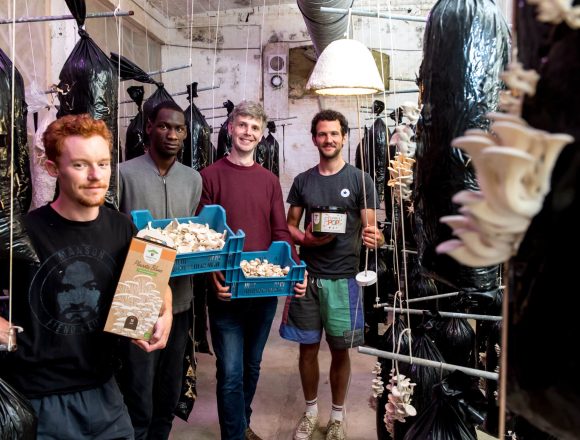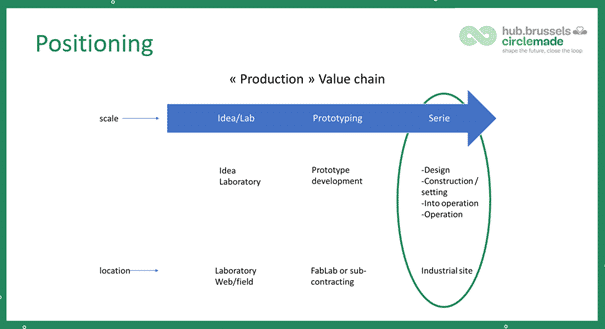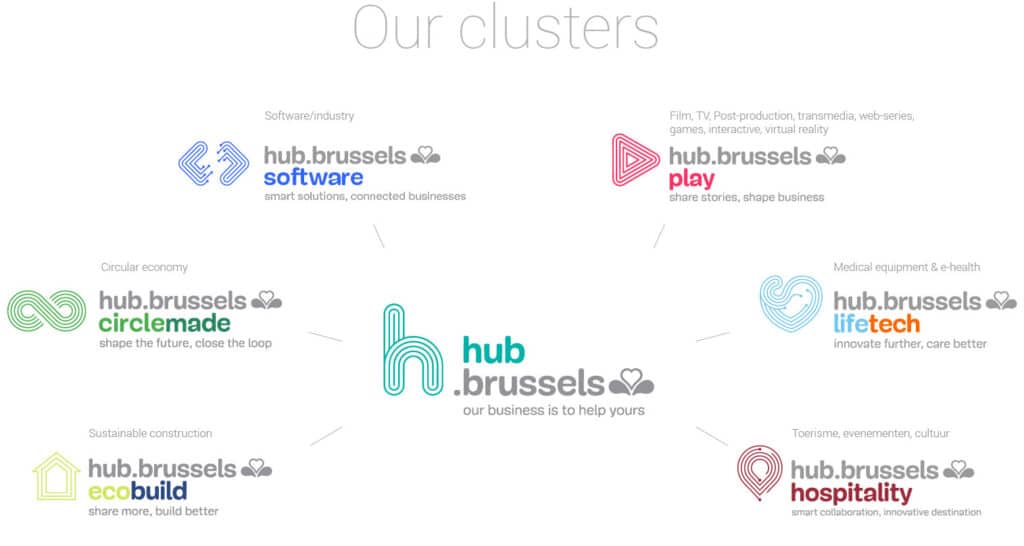Circlemade
Do you lack information about the circlemade network, its composition and its missions? This page is for you!

Historical background
The circlemade network was created on 24 May 2018 as part of the Brussels-Capital Region’s Regional Circular Economy Programme (PREC 2016-2021), at the initiative of the Brussels Minister for the Economy and Employment, the Minister for the Environment and Energy and the Secretary of State for Public Hygiene, Waste Collection and Processing.
Initially open to all activities with a circular model, in 2023 the cluster shifted its focus to circular production activities, with the exception of the food sector.
circlemade is hosted by hub.brussels, the Brussels Agency for Entrepreneurship, alongside 5 other clusters in the fields of health, audiovisual, tourism & events, software and sustainable construction and renovation.
What is a cluster ?
A cluster is made up of a triple helix: companies, research/academic centres and public institutions.
The aim of a cluster is to boost the competitiveness and economic development of companies in its field.
Thanks to the proximity of these players, the cluster stimulates innovation and enables companies to develop more rapidly.
Why a cluster in the circular economy?
The linear “earn – produce – consume – throw” model, which is not very environmentally friendly and consumes a lot of resources and energy, is on the way out and is now showing its limitations. This is why the circular economy, which aims to make more efficient use of resources and reduce the impact on the environment while improving people’s well-being, has become a priority for the Brussels-Capital Region.
The circular economy is one of the models encouraged and supported by the Region’s economic transition strategy, Shifting Economy (2022-2030).
Circlemade
circlemade is the network of circular manufacturing companies in Brussels. Its members are innovative companies that promote a more sustainable and environmentally friendly business model by working to develop manufacturing in the city.
The cluster’s core businesses are those engaged in circular manufacturing and repair, and those developing material and water recovery technologies. Other companies complete the value chain to support their development.
Find out more on our member page!
Circlemade facilitates the development of joint projects, in particular through cooperation and the sharing of experience between members, but also by putting them in touch with key partners.
Positioning
In the production value chain, the cluster is positioned after the FabLabs, where the company wants to set up its own industrial site and will need specific skills to design, install, commission and operate it, skills that it should be able to find within the cluster.

Circlemade's missions
Connect people
To create a dynamic between all the players in the ecosystem (institutions, academics and businesses) with a view to fostering synergies and initiating new public or private opportunities.
Inspire
Sharing knowledge, communicating innovative practices to stakeholders to help them develop their entrepreneurial project and adapt their business model.
Support
Supporting the economic development of businesses in Brussels.
Enhance
To highlight the expertise of its members and contribute to their visibility within the Brussels-Capital Region, in Belgium and internationally.
Internationalise
Supporting members’ international development through participation in trade fairs, conferences, B2B, etc. and access to networks (Economic and Trade Advisors Network, National Contact Points Network, Enterprise Europe Network).

Do you want to learn more about the link between business and the circular economy?
